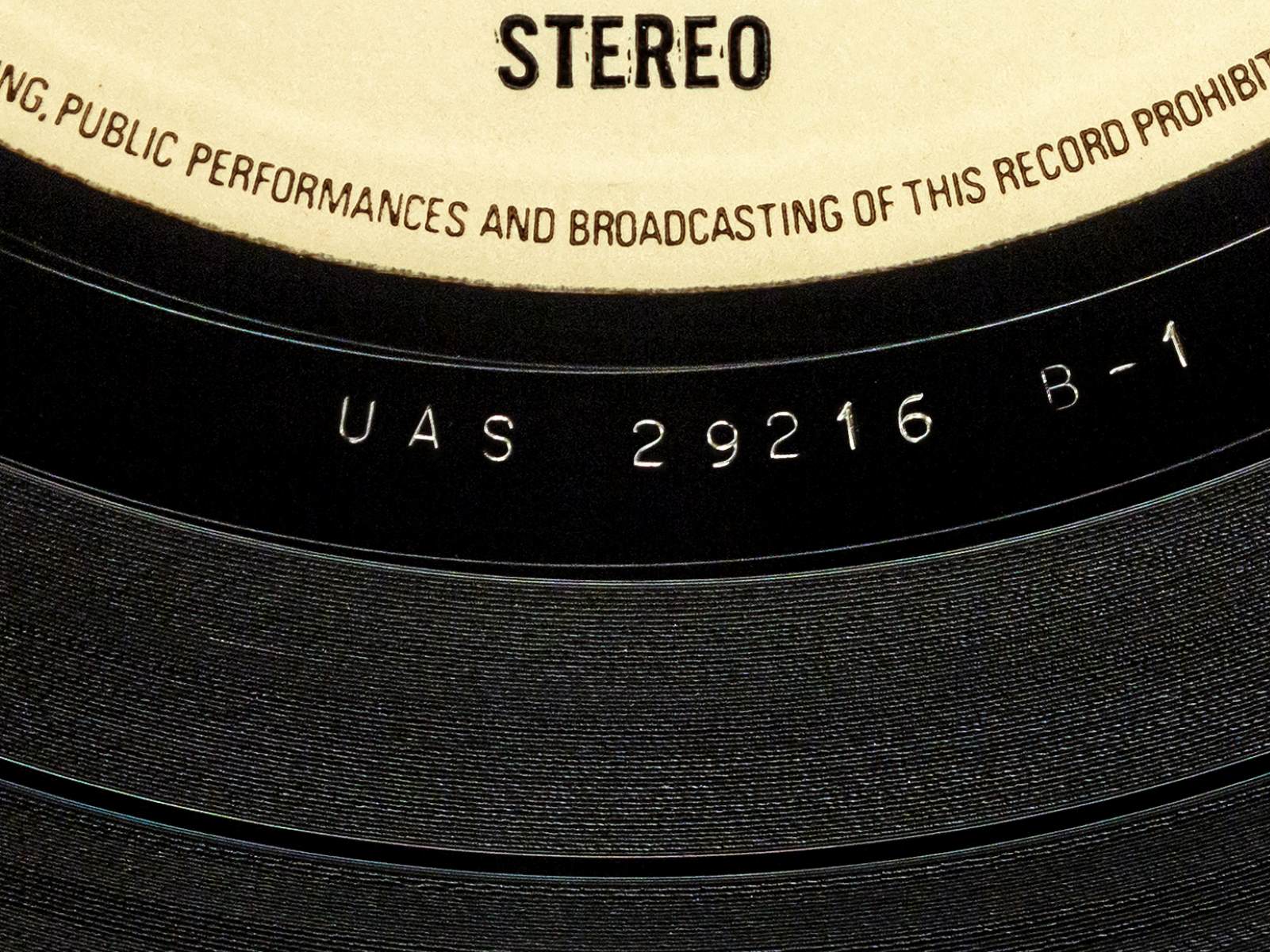Home>Production & Technology>Record Label>What Is The Difference Between A Record Company And A Record Label


Record Label
What Is The Difference Between A Record Company And A Record Label
Published: January 24, 2024
Discover the key distinctions between a record company and a record label. Uncover the role of a record label in the music industry.
(Many of the links in this article redirect to a specific reviewed product. Your purchase of these products through affiliate links helps to generate commission for AudioLover.com, at no extra cost. Learn more)
Table of Contents
Introduction
When it comes to the music industry, you may have come across terms like record company and record label. While these terms are often used interchangeably, they actually have distinct meanings and play different roles within the industry. Understanding the difference between a record company and a record label can help you gain a deeper insight into how the music business operates.
A record company, also known as a music company or a record label, is an entity that is involved in the production, promotion, distribution, and marketing of music recordings. It serves as a business organization that manages artists, handles contracts, and takes care of the financial aspects of music production.
On the other hand, a record label is a specific division or imprint within a record company that focuses on the development and promotion of a particular artist, group, or genre. It operates under the umbrella of the record company and is responsible for scouting talent, overseeing the creative process, and marketing the music to the target audience.
The relationship between a record company and a record label can be likened to that of a parent company and its subsidiary. The record label operates within the structure and resources provided by the record company, but it maintains its own identity and operates autonomously to a certain extent.
In the next sections, we’ll delve deeper into the definitions, roles, and responsibilities of record companies and record labels. We’ll also explore the key differences between the two entities to provide you with a comprehensive understanding of how they contribute to the functioning of the music industry.
Definition of a Record Company
A record company, also known as a music company or a record label, is a business entity that operates in the music industry. It serves as a central organization that oversees the production, distribution, and promotion of music recordings. Record companies play a vital role in the development and success of artists, as they provide the necessary resources and support to bring music to the masses.
Record companies are responsible for discovering and signing talented artists, negotiating and managing contracts, and financing the production and marketing of music. They have dedicated teams that handle various aspects of the music business, including A&R (Artists and Repertoire), sales and marketing, legal affairs, finance, and artist relations.
Record companies work closely with recording studios, producers, songwriters, and other industry professionals to create high-quality music recordings. They invest in the recording process, which includes hiring musicians, arranging studio time, and ensuring that the production meets industry standards.
Once the music is recorded, record companies take on the responsibility of distributing the recordings to various outlets, such as physical retailers, online platforms, and streaming services. They work with distribution partners to ensure that the music reaches a wide audience and maximizes its potential for sales and streams.
Furthermore, record companies handle the marketing and promotion of artists and their music. This includes creating marketing strategies, designing album artwork, organizing promotional campaigns, securing airplay on radio stations, arranging interviews, and organizing live performances and tours.
It’s important to note that record companies are profit-driven entities. They aim to generate revenue through the sale and streaming of music recordings, as well as through merchandise, licensing deals, and other associated revenue streams. They often recoup their investments in artists through album sales, concert ticket sales, and endorsement deals.
In summary, record companies are essential players in the music industry. They provide the infrastructure, financial backing, and expertise needed to transform artistic talent into commercially successful music. Without record companies, many artists would struggle to reach their full potential and share their music with the world.
Definition of a Record Label
A record label is a specialized division or imprint within a record company that focuses on the development and promotion of specific artists, groups, or genres. While the terms “record company” and “record label” are often used interchangeably, a record label operates as a distinct entity within the larger organizational structure of the record company.
A record label is responsible for scouting and signing talented artists, guiding them through the creative process, and marketing their music to the target audience. The label acts as a platform for artists to showcase their talent and gain exposure in the music industry.
One of the primary roles of a record label is artist development. This involves working closely with artists to hone their sound, refine their image, and create compelling music that resonates with listeners. The label provides guidance and resources to help artists grow and evolve their craft, ensuring that they have the best chance of success in a competitive industry.
Record labels also play a crucial role in the marketing and promotion of artists and their music. They develop strategic marketing plans, create buzz around new releases, and employ various promotional strategies to generate interest and attract listeners. This can include organizing album launch events, securing media coverage, leveraging social media platforms, and collaborating with other artists and influencers.
Additionally, record labels handle the distribution of the music produced by the artists on their roster. They work closely with the record company’s distribution channels to make the music available to the public through physical and digital formats. Record labels also negotiate licensing deals to ensure that the music is accessible on platforms such as streaming services, radio, and television.
While record labels collaborate closely with artists, they also act as a liaison between the artists and the record company. They advocate for the artists’ interests, negotiate contracts, and ensure that the artists are fairly compensated for their work. They may also provide advances and financial support for recording costs, marketing campaigns, and promotional activities.
Overall, a record label serves as a vital bridge between the artists and the record company. It focuses on nurturing talent, promoting music, and building a brand for the artists under its umbrella. Through their expertise in artist development, marketing, and distribution, record labels play a pivotal role in shaping the careers of artists and driving the success of the music industry as a whole.
Relationship between a Record Company and a Record Label
The relationship between a record company and a record label can be likened to that of a parent company and its subsidiary. While both entities are involved in the music industry, they operate with distinct roles and responsibilities while remaining interconnected.
A record company is the overarching entity that oversees the operations and finances of the entire organization. It provides the infrastructure, resources, and support needed for the record label to function effectively. The record company may have multiple record labels under its umbrella, each with its own focus and roster of artists.
The record label, on the other hand, operates within the structure and support system provided by the record company. It acts as a specialized division or imprint that focuses on developing, promoting, and marketing specific artists or genres. The record label often has its own team of professionals who work closely with the artists to shape their career and achieve success.
The relationship between the record company and the record label is one of mutual dependence. The record label relies on the resources and expertise of the record company to finance and support the various activities involved in artist development, production, marketing, and distribution. The record company, in turn, relies on the record label to identify and nurture talent, create commercially viable music, and generate profits.
While the record label operates autonomously to a certain extent, it must align its strategies and decisions with the goals and objectives of the record company. This ensures that the efforts of the record label contribute to the overall success of the record company and its various divisions.
Communication and collaboration between the record company and the record label are crucial for a harmonious and productive relationship. This involves regular meetings, consultations, and updates on the progress of artists, upcoming releases, marketing plans, and financial matters.
Ultimately, the relationship between a record company and a record label is symbiotic. The record company provides the foundation and support needed for the record label to operate, while the record label drives the artistic development and commercial success of artists. Together, they form a cohesive unit that strives to create and promote exceptional music and contribute to the vibrant and ever-evolving music industry.
Roles and Responsibilities of a Record Company
A record company plays a pivotal role in the music industry, serving as a central organization that oversees various aspects of music production, promotion, distribution, and financial management. The roles and responsibilities of a record company are diverse and encompass multiple areas of expertise.
1. Scouting and Signing Artists: One of the primary responsibilities of a record company is to discover and sign talented artists. This involves scouting for new talent, attending live performances, listening to demos, and evaluating potential commercial viability. Once an artist is signed, the record company negotiates contracts and establishes a working relationship.
2. Artist Development: A record company is responsible for nurturing and developing artists’ careers. This includes providing guidance, resources, and support to help artists refine their sound, image, and artistic direction. The record company invests in the development of artists to maximize their potential for success.
3. Financial Management: Record companies oversee the financial aspects of music production. They handle budgeting, financing, and accounting related to recording, marketing, promotion, and distribution of music. They ensure that artists are properly compensated and manage revenue streams from sales, streaming, licensing, and other sources.
4. Recording and Production: Record companies collaborate with artists, producers, and recording studios to produce high-quality music recordings. They oversee the recording process, ensuring that it meets industry standards, and provide the necessary resources and expertise to create commercially viable music.
5. Marketing and Promotion: A record company is responsible for creating effective marketing strategies and promoting artists and their music to the target audience. This includes designing marketing campaigns, organizing promotional events, securing media coverage, leveraging social media platforms, and coordinating with publicists and marketing agencies.
6. Distribution and Licensing: Record companies handle the distribution of music recordings to various outlets, including physical retailers, online platforms, and streaming services. They work with distribution partners to ensure widespread availability of the music. Record companies also negotiate licensing deals to have the music featured in films, commercials, television shows, and other media.
7. Artist Relations: Record companies establish and maintain relationships with artists, acting as a liaison between the artists and the company. They advocate for the artists’ interests, provide support, and ensure clear communication throughout the artist-label relationship. They also collaborate with artists on strategic decision-making and career planning.
8. Legal and Copyright Management: Record companies handle legal matters related to music production and distribution. They ensure that artists’ rights and intellectual property are protected through copyright registration, licensing agreements, and copyright enforcement.
In summary, a record company plays a multifaceted role in the music industry. It serves as a business organization that discovers, develops, promotes, and supports artists. By providing financial backing, infrastructure, expertise, and strategic guidance, record companies significantly contribute to the success of artists and the overall functioning of the music industry.
Roles and Responsibilities of a Record Label
A record label has distinct roles and responsibilities within the music industry. As a specialized division or imprint within a record company, the record label focuses on the development, promotion, and marketing of specific artists or genres. The following are the key roles and responsibilities of a record label:
1. Artist Development: A record label is responsible for nurturing the careers of artists under its roster. This involves providing guidance, support, and resources to help artists refine their sound, craft, and image. The label’s A&R (Artists and Repertoire) team works closely with artists to develop their artistic direction, songwriting skills, and overall brand.
2. Creative Direction: The record label plays a vital role in shaping the creative direction of the artists it represents. This includes working with artists on song selection, arranging collaborations with other artists and producers, and guiding the overall vision for album and music video concepts. The label ensures that the music aligns with the target audience and market trends.
3. Music Production: Record labels oversee the music production process, ensuring that the recordings meet industry standards and are of high quality. They collaborate with producers, engineers, and session musicians to bring the artists’ vision to life. The label may provide resources and funding for studio time and the hiring of additional talent.
4. Marketing and Promotion: One of the primary responsibilities of a record label is to market and promote the music and artists it represents. This involves creating effective marketing strategies, designing album artwork, planning promotional campaigns, securing media coverage, and leveraging social media platforms. The label works to increase visibility and generate buzz around new releases.
5. Distribution and Licensing: Record labels handle the distribution of music recordings to various outlets, including physical retailers, online platforms, and streaming services. They work closely with the record company’s distribution channels to ensure that the music reaches a wide audience. Record labels also negotiate licensing deals to have the music featured in films, commercials, television shows, and other media.
6. Touring and Live Performances: Record labels play a key role in organizing and promoting live performances and tours for their artists. They collaborate with booking agents, concert promoters, and venue managers to secure performance opportunities. The label may also provide support and resources for staging, production, and logistics related to touring.
7. Branding and Image Management: Record labels work with artists to carefully craft their brand and image. This includes managing the artists’ public image, overseeing professional photo shoots, coordinating press appearances and interviews, and ensuring consistency across all marketing materials. The label helps create a distinct identity for the artists and builds their brand.
8. Financial Management and Royalties: Record labels handle financial aspects related to the artists they represent. They manage the collection and distribution of royalties from sales, streaming, and other revenue streams. The label ensures that artists are properly compensated and provides financial reporting and accounting services.
In summary, a record label is responsible for fostering artistic development, marketing, and promoting artists, overseeing music production, managing branding and image, coordinating distribution and licensing, and handling financial matters. By taking on these roles and responsibilities, record labels play a pivotal role in shaping the careers and success of artists in the music industry.
Key Differences between a Record Company and a Record Label
Although the terms “record company” and “record label” are sometimes used interchangeably, there are distinct differences between the two entities within the music industry. Understanding these differences can help clarify their respective roles and contributions. Here are the key differences between a record company and a record label:
1. Scope and Structure: A record company is a broader term that refers to the overall business organization involved in the production, promotion, distribution, and financial management of music recordings. It encompasses various divisions, including record labels. On the other hand, a record label is a specific division or imprint within a record company that focuses on developing, promoting, and marketing specific artists, groups, or genres.
2. Artist Focus: While a record company may have multiple record labels under its umbrella, each with its own artist roster, the record company’s main focus is on the business side of music production. The record label, however, is primarily focused on artist development, creative direction, and marketing strategies for the artists it represents.
3. Autonomy: Record companies typically have more control and influence over the overall operations and financial aspects of music production. They provide resources, infrastructure, and support to record labels and have the final say in decision-making. Record labels, although operating under the record company, often have more independence and autonomy when it comes to artist-related activities such as scouting talent, artistic development, and marketing campaigns.
4. Artist-Label Relationship: Artists signed to a record company have a contractual relationship with both the record company and the record label. The record company is responsible for the business and financial aspects, while the record label works closely with the artists on creative development, marketing, and promotion. Artists may interact more directly and collaboratively with the record label, while the record company oversees the overall operations.
5. Marketing and Promotion: Record companies have a broader reach in terms of marketing and promotion, as they oversee the marketing strategies for the entire organization. They handle the overall branding and distribution of music recordings to various outlets. Record labels, on the other hand, focus more specifically on marketing and promoting the artists they represent, tailoring their strategies to the target audience and genre.
In summary, a record company is the overarching entity in the music industry, responsible for the overall business operations and financial management. Record labels, as specialized divisions within record companies, focus on artist development, creative direction, and marketing strategies for specific artists. While both entities work in conjunction to bring music to the masses, they have distinct roles and contribute different expertise to the music industry ecosystem.
Conclusion
In conclusion, understanding the difference between a record company and a record label is crucial for gaining insight into the workings of the music industry. While they are related entities, the roles and responsibilities of each are distinct and contribute to the success of artists and the overall functioning of the music business.
A record company serves as a central organization that manages the production, promotion, distribution, and financial aspects of music recordings. It provides the infrastructure, resources, and support needed to bring music to the public. The record company oversees various divisions, including record labels, which focus on artist development, marketing, and promotion.
Record labels, as specialized divisions within a record company, have a primary focus on specific artists, groups, or genres. They work closely with artists on the creative process, shaping their sound, image, and brand. Record labels create marketing strategies, organize promotional campaigns, and strive to maximize the exposure and success of the artists they represent.
The relationship between a record company and a record label is one of mutual dependence, with the record label operating within the structure and support system provided by the record company. Communication, collaboration, and alignment of goals are crucial for a harmonious and productive relationship between the two.
In summary, record companies and record labels play vital roles in the music industry. Record companies provide the necessary infrastructure and financial backing, while record labels focus on artist development and marketing strategies. Together, they contribute to the discovery, production, promotion, and distribution of music, shaping the careers of artists and driving the success of the industry as a whole.











